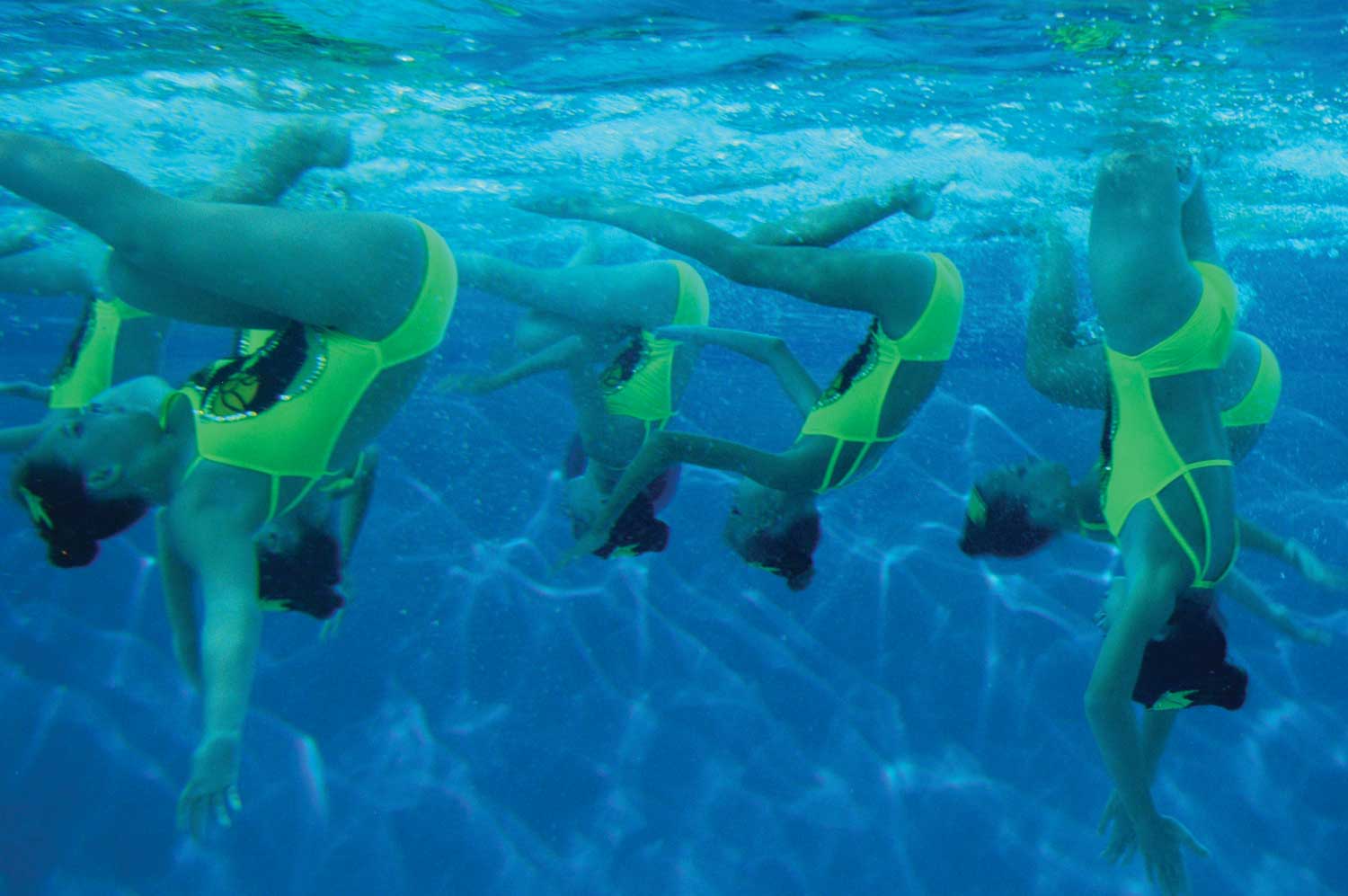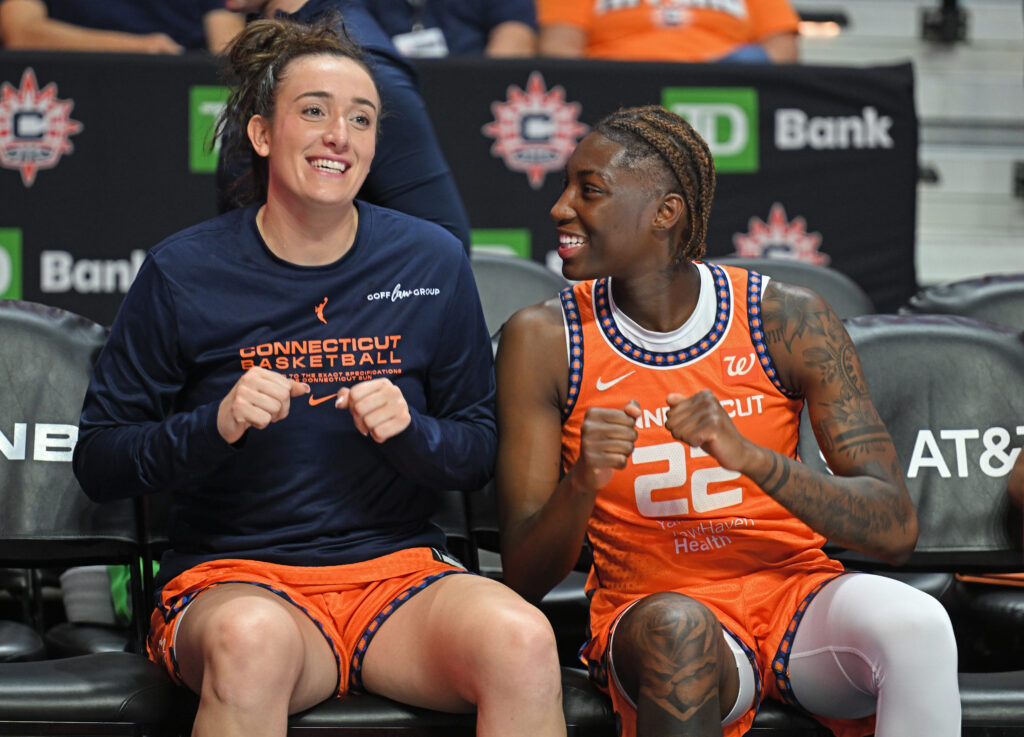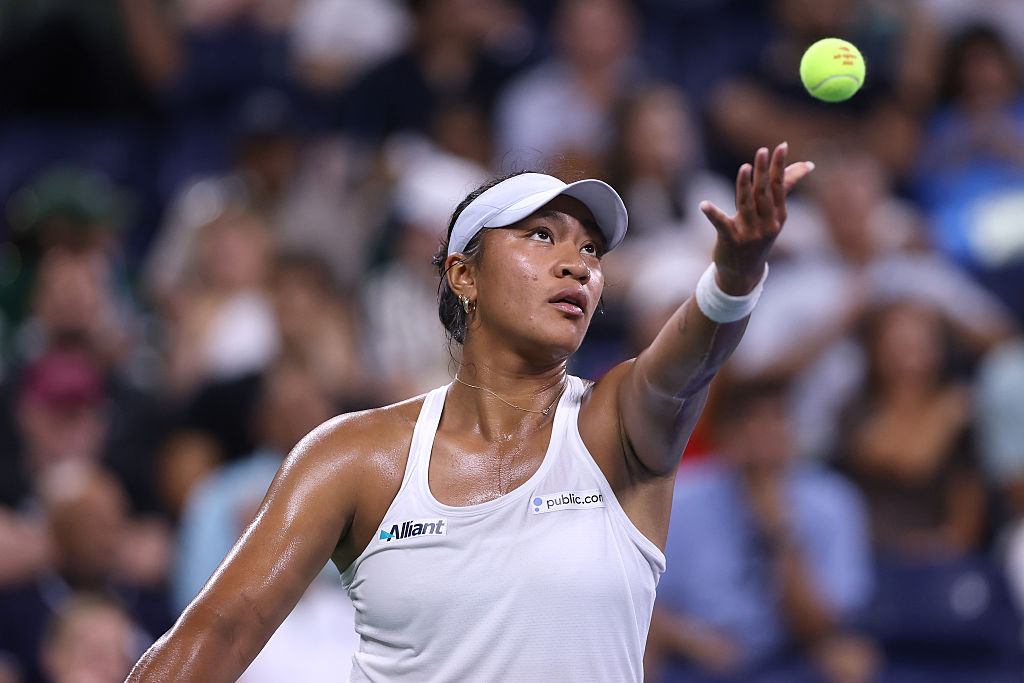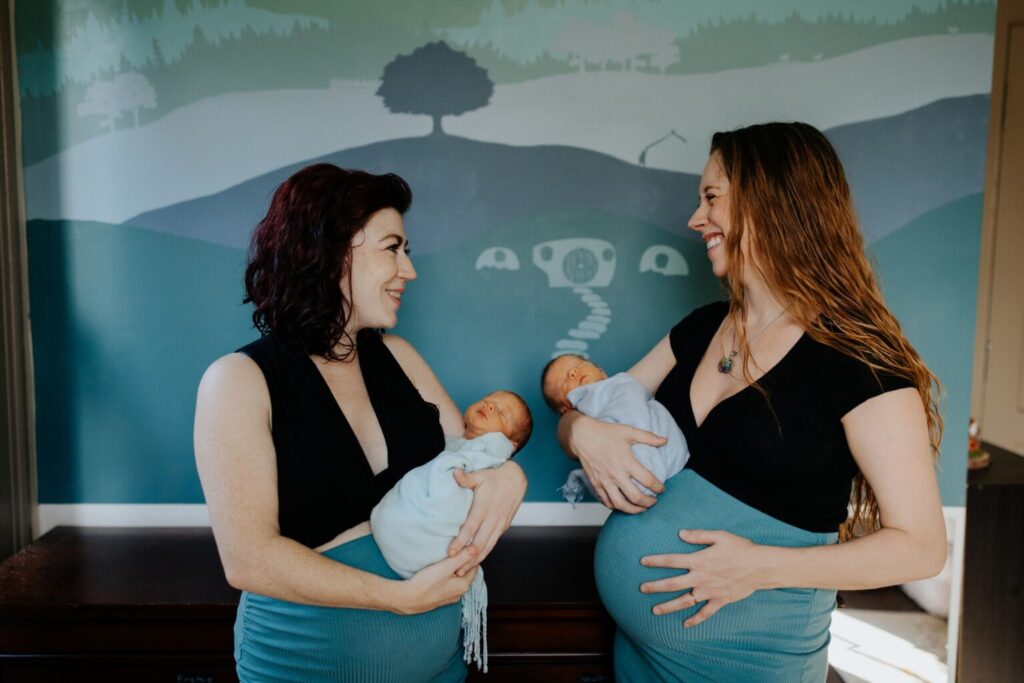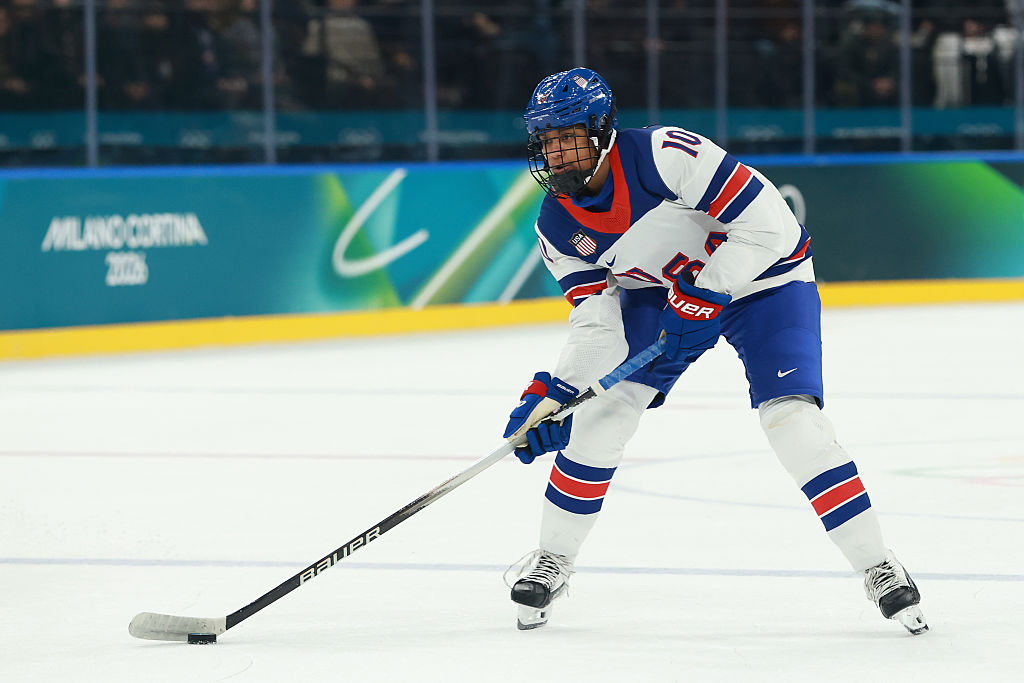Interview: Director Celine Sciamma Makes a Splash at Cannes with Water Lilies
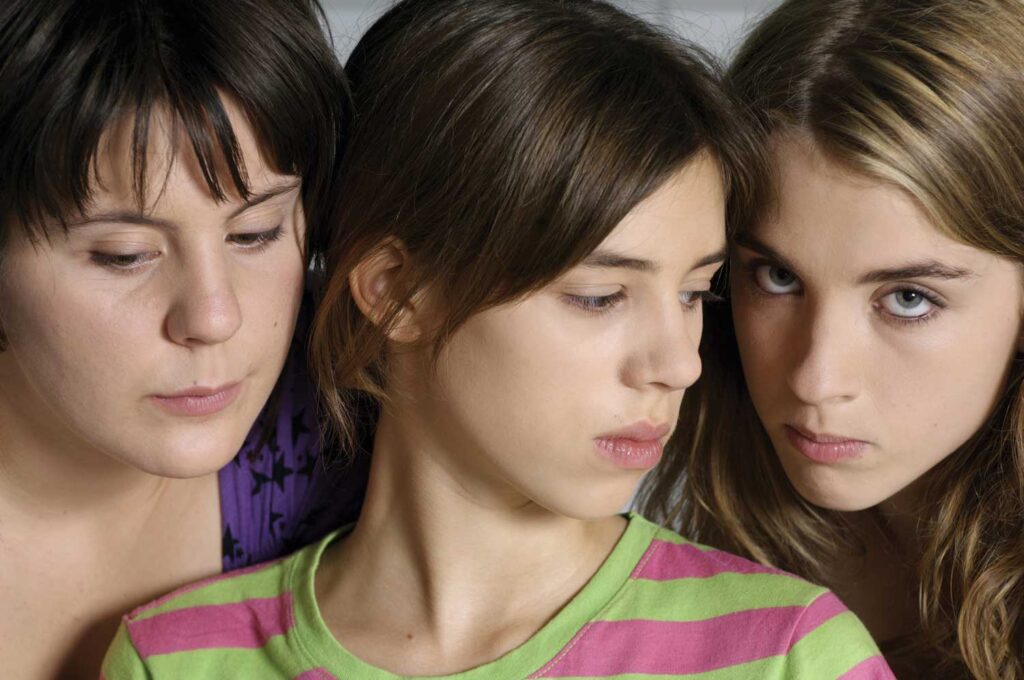
GO talks to Sciamma about her new film, that has received rave reviews world wide.
Celine Sciamma is the writer and director of Water Lilies, an acclaimed, Cannes-selected film. Water Lilies tells the honest, riveting story of a young teenage girl’s awkward entry into the world of sexuality. Through the main characters, we see three very different and authentic experiences. Shy, petite Marie finds herself falling in love for the first time, and with another girl. Floriane endures the curse of beauty that invites the sexual attention of every male, and the scorn of most girls. Anne is the outcast who wants very much to graduate to the world of adult sex, while dealing with body issues and other adolescent trials. The girls interact against the backdrop of a pool where the synchronized swimming team meets. The film is beautiful, accurate and jarring as its story unfolds. GO sits down with Celine Sciamma to discuss her process of making Water Lilies, the care she put into portraying an accurate female and lesbian experience, and how she identifies personally with the narrative.
GO: The film is cleanly shot and beautiful to watch. Do you think it helped that you got to both write the screenplay and direct?
Celine Sciamma: Yes, it was truly my story for the entire process, and I was able to maintain complete control. I set out to make a movie about girls from the girl’s point of view, because I think it’s a story that hasn’t been told this way before. A lot of films celebrate women, but most of the time it is men doing the talking, so it ends up being a man’s perspective on women, rather than an authentic experience of being female. When I started writing it I thought, ‘Okay, I’m writing a Coming-of-Age movie, it’s also my first movie, and this kind of movie has been done over and over.’ People already know what to expect from that kind of story, especially in France. It’s a bit of a tradition for a filmmaker to make their first movie surrounding their own intimate coming-of-age story. I wanted this story to be portrayed freshly, because it’s very different than your average boy-girl first romance, [in that] the boys are not included at all.
Synchronized-swimming is an integral part of the film, and acts as an important symbol. Tell us about that…
Synchronized swimming is the only sport that is just for girls, and it says a lot about what is expected from girls in society. You have to be smiling and posing, and pretending you’re not working hard at it. It’s the only sport in the world that I can think of where you have to pretend you’re not doing a sport. With the matching bright, painted on faces and caps, the girls are uniform and unidentifiable from one another. All the hard work goes on under the water, unseen to spectators, where they kick and balance and fight and tread water. Above the water all you see is perfect, in-sync feminine poses with a smile. It’s like girls going to battle. The whole concept of it really fascinates me.
You shot the film in the small suburb in France of your own childhood. What was that experience like for you?
There’s a mix of very intimate material, of course, because from the time I was a teenager, I was really obsessed with synchronized swimming. The feelings that are in the movie are true to what I felt, are very honest. I did want to make fiction, but I also wanted something that everyone could believe and relate to. The actual facts in the film are made up, but the feelings behind them are very real.
Your three main characters, Marie, Anne and Florianne, all represent a different feminine adolescent body type, and are living out circumstances that most everyone can relate to…
I wanted to begin with archetypes, the ones you find in life, but also in movies. There is the beautiful, vivacious, sporty girl that every guy wants; the shy, skinny, undefined young girl with a pony tail; and the chubby, funny friend. I wanted everyone to connect to these archetypes at the beginning, and say, “Oh, I know where that’s going.” But then it gets more complex and subtle and deep, and goes somewhere you wouldn’t go willingly. That was a strategy I had, to tell the real truth of what goes on inside each of these girls, to make them real rather than just types. I wanted everyone to identify with a 15-year-old girl, not an adult, not a boy. You can relate to parts of all three girls in different ways.
We see films about teenage sexuality all the time, but what stands out about Water Lilies, besides Marie’s same-sex attraction, is that this film seems particularly evocative. It reminded me of feelings I had forgotten I had when I first felt attraction and love as a teenager. Instead of these girls portraying the story of adult love as teenagers, they are portraying a raw, inexperienced and extremely strong feeling that only first attraction can elicit, something everyone can relate to. Did you purposefully focus on the girls’ developing sexuality?
I wanted the movie to give no answer to what Marie is going to become. I have my own answer about who Marie is and who she becomes later, but anyone can interpret it how they want, as just a contextual experience, or the beginning of a longer journey. The same “Coming Out” story has been told over and over again, and I didn’t want this movie to be that. I think this movie is the prelude to that, in that it ends where all those other movies begin. She realizes, ‘Hey, I am in love with a girl. What am I going to do?’ She has to confront her definition of love and morality, and how to present it all to society. But that is not the initial step I wanted to show. I wanted to illustrate the first stirring, where it is still an overwhelming, consuming, exciting and scary feeling that is completely internal and private.
Were you nervous about directing young people in such a sexual context?
I was, but it was really well balanced. It was my first time as a director, my first movie being made and, for many of the actresses, it was their first film and acting experience as well. I would have been much more nervous if the actresses had a lot of experience and were flawless. I chose them to be very age appropriate to the story, because I wanted that innocence and fear and inexperience and passion to come through. I didn’t think a 20-year-old playing 15 would give that same performance.
When teen sexuality and desire are addressed, often times we’re left with a fetishized Lolita quality. You avoid that very well, and instead show the viewer the camaraderie and understanding between the girls. How did you manage to convey that?
It’s a complex journey, and I was really asking myself a lot of questions about the genre of teen movies. There are usually the relationships of boys to girls, and teens to grown-ups, which is why there are really no adults in this film. They are very one-dimensional when they do appear. Having little dialogue between the girls and males and grownups meant that the viewer really sticks with the perspective of the young girls. I wanted to tell something about just the teen girl’s perspective, and some people say, ‘Oh, you have a vision of men that is so terrible,’ and I say ‘No, there is no vision at all of men, bad or good.’ I am not touching on that in this film.
How did make the more intimate scenes seem less voyeuristic?
It was difficult, and I always had that in mind. It’s all about where you put the camera and I thought, you know, I didn’t want to have a keyhole point of view of someone spying in locker room. I wanted the audience to feel legitimate, as if they were one of the girls there, that they belonged in the locker room. So I chose really simple ways of shooting, sticking to the point, very close up, and I also chose to shoot those girls with love, very gently with strong perspective, not slinky.
This film was first shown in France. Was the audience reception there much different?
The movie is really well received everywhere, and has been distributed to Japan, the US, England, Ireland, Sweden, Norway and Taiwan, which is rare for a first time movie. Some audiences in different countries are more obsessed with the gay aspect of the movie, but most audiences have been very touched by it.
You weren’t at all worried about meeting controversy, considering it deals not only with young girls’ sexuality, but also homosexuality?
Well, for example, in England the press was incredible and good, but regarding the rating, no one under 16 could see it. In France all audiences could. Some places are more comfortable with it than others.
There is one particularly vivid and intimate scene, where Florianne and Marie lose their virginity to one another. Were you especially concerned with portraying that respectfully and accurately?
Oh yes, well, you ask yourself a whole lot of questions, like if there are too many cuts in the filming, then it becomes voyeurism. You have to pick just the right moment to make closer shots, and their faces tend to be the focus, what they are experiencing emotionally.
You’re a publicly out as a lesbian. What has that been like in regards to the film?
Well, I’m out thanks to American people! (laughing) I didn’t have the time to make a decision. I was in Cannes doing a press junket. I didn’t really know who I was talking to, and an American came up asking informal questions. He asked, ‘Are you gay?’ and I said, ‘Yeah, I am.’ Later I find out that guy is from the Advocate, and that they have a headline about “Director Comes Out at Cannes,” so I did it without knowing I was doing it. I was never “in” to come out, but I don’t really like it when it’s connected to the movie. I am a lesbian director, but I’m also a woman director, and a French director. If you add them all, it’s okay, but separating one out is not honest. In France there is less of a question of whether you are a lesbian or not. It’s other places that it is such a big deal.
Do you have any plans for future projects?
I don’t wake up every other day with an idea that I’m committed to. I have to spend a long time to tell a story to the world. What’s good about being a writer is that I can tell other people’s stories. Right now I’m writing for French TV, and I’ll start to think about another film to make somewhere down the road when it hits me. My next project will likely be a comedy, but I always want to talk about the issue of femininity, you should talk about what you know. Also, my dream right now is to direct an episode of The L Word before it goes off the air.
You have to hurry!
I know, I have to figure it out!
Water Lilies will be premiering in different locations throughout the US, and is already playing in some major cities, so check your local listings. For more info on the film, go to http://www.waterliliesmovie.co.uk/




